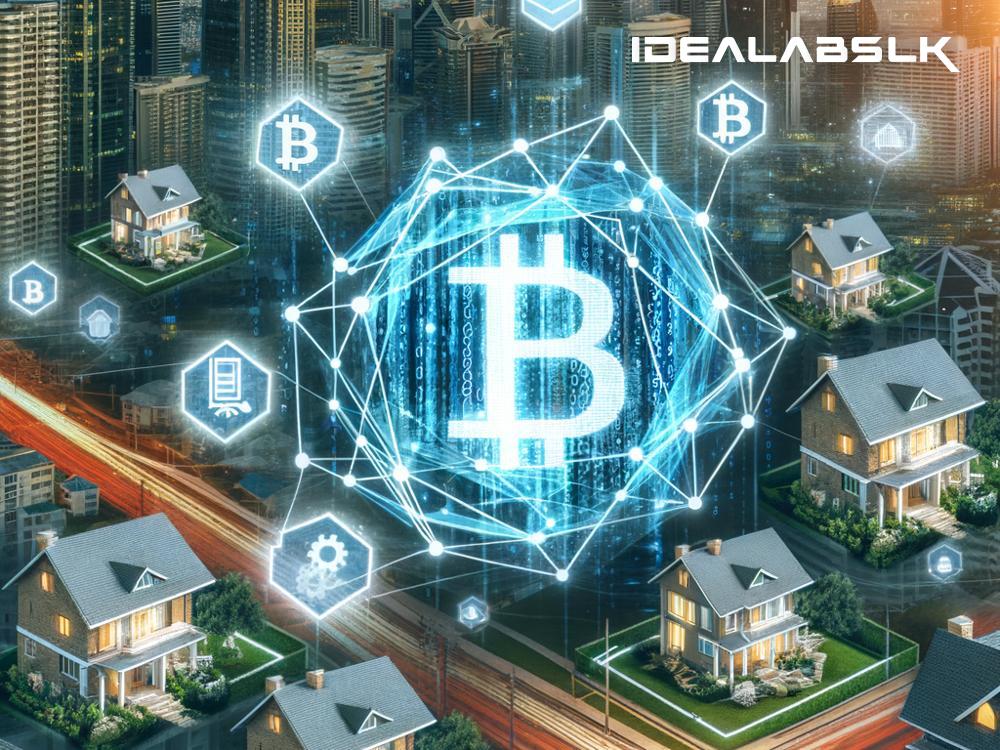Unlocking the Potential of Blockchain in Real Estate Titles
In today's world, blockchain technology is a term that almost everyone has heard of, primarily because of its connection to cryptocurrencies like Bitcoin. However, the scope of blockchain extends far beyond digital currencies. Among the various sectors it is set to revolutionize, real estate stands out, particularly in managing property titles.
The process of buying or selling a property is undeniably complicated. It involves substantial paperwork, various intermediaries like agents and lawyers, and, most importantly, a title or deed - the official document proving ownership. Unfortunately, this system, being largely paper-based and antiquated, is ridden with inefficiencies, errors, and even fraud. This is where blockchain comes into play, promising to overhaul the entire system, making real estate transactions smoother, faster, and more secure.
What is Blockchain, Exactly?
Imagine blockchain as a digital ledger or record book that is not stored in one single location but is distributed across numerous computers around the world. This ledger transparently records transactions, each entry linked to the previous one, forming a chain. This process ensures that once a transaction is recorded, it is almost impossible to alter, making the blockchain incredibly secure and trustable.
Transforming Real Estate Titles with Blockchain
Blockchain's inherent characteristics make it ideally suited for transforming how property titles are managed. Here's how it stands to change the game:
1. Enhanced Security and Transparency
With blockchain, the history of every transaction concerning a property is recorded in a way that it cannot be altered or tampered with. This immutable recording system virtually eliminates the risk of fraud, ensuring that the property titles are secure. Moreover, the transparency of the blockchain ensures that every party involved in the transaction, from the buyer to the regulatory authorities, has access to the same information, fostering trust among all parties.
2. Speed and Efficiency
Traditional methods of transferring property titles can take weeks, if not months, bogged down by the manual paperwork and verification processes. Blockchain can make these transactions almost instantaneous. Since the information on the blockchain is verified and readily available, the need for extensive background checks and document verifications is significantly reduced, speeding up the entire process.
3. Reduced Costs
The current system of transferring property titles is not just slow but also expensive. It involves paying various intermediaries, including real estate agents, lawyers, and banks. By automating and streamlining much of this process, blockchain can cut out many of these middlemen or reduce their roles, thereby lowering the transaction costs significantly.
4. Easy Access to Historical Records
Given the digital and transparent nature of blockchain, accessing the history of a property, including previous transactions and ownership details, is straightforward. This can be especially beneficial in areas where property records are poorly maintained or prone to manipulation. The process of due diligence becomes more manageable and more reliable with blockchain.
5. Global Standardization
Real estate transactions, especially those involving parties from different countries, can be incredibly complicated, given the varying laws and standards. Blockchain offers a pathway toward standardization, where property titles and transactions can be recorded and recognized universally, facilitating smoother international dealings.
Looking Ahead
Several countries and companies are already exploring blockchain for real estate titles. Sweden, for example, has been testing a blockchain-based land registry system. Meanwhile, startups like Propy are allowing users to buy and sell properties across borders using blockchain.
However, widespread adoption of blockchain in real estate comes with its set of challenges. Regulatory hurdles, technological complexities, and the need for substantial initial investment are among the primary barriers. Yet, the potential benefits are too significant to ignore.
In conclusion, while we are still in the early days of blockchain transforming real estate titles, the potential is undeniable. As technology matures and more stakeholders come on board, we may very well be on the cusp of a real estate revolution, where transactions are not just safer and faster but also more transparent and accessible than ever before. The key to unlocking this potential lies in collaboration among technology providers, regulatory bodies, and the industry at large to overcome the challenges and pave the way for a new era in real estate transactions.

